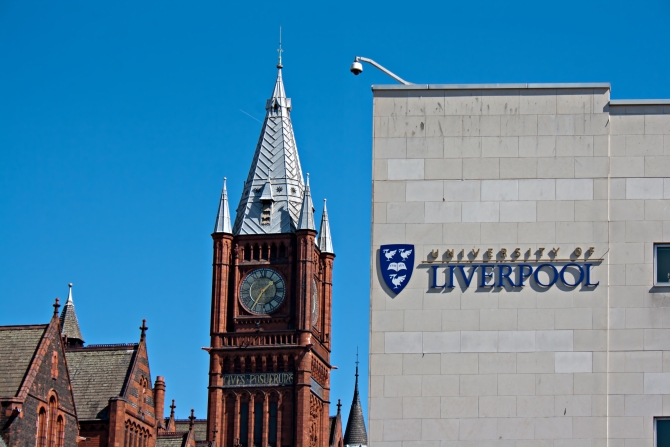The Government is contributing a third of the money needed to launch a high-tech Merseyside university business hub that could house 300 new businesses and create 1,000 new jobs.

Sensor City — described as a “sensor-systems business incubator” — is a £15m collaboration between the University of Liverpool and Liverpool John Moores University with £5m of central cash coming through the Liverpool City Region Local Enterprise Partnership (LEP).
It will be housed in a 27,000 sq ft purpose-built complex in the city’s Copperas Hill redevelopment zone and become home to companies developing and implementing new sensor systems and their integrating into industry.
The Sensor City application for enterprise zone status attracted 107 letters of support from potential stakeholders across the UK, including regional and national small firms, multi-nationals, international agencies, regional science parks, funding and business support agencies and local government.
“Sensor City is a fantastic example of what can be achieved when universities and businesses collaborate, and stands testament to the extraordinary talent in Liverpool,” commented Universities, Science and Cities Minister, Greg Clark.
“This new facility will ensure that the innovation and entrepreneurial spirit of students and academics can be harnessed by industry. This is great news for Liverpool and great news for the rest of the UK.”
Britain’s sensor industry is claimed to be worth around £13bn each year. It directly supports 70,000 jobs and produces £6bn in exports. Overall almost one-and-a-half million UK workers are employed in professions using sensors, 159,000 of them in the North West and 27,000 in Liverpool.
Steve Holloway is University of Liverpool executive pro-vice-chancellor. “It is a great achievement for the city to have been successful in winning the national competition to create the University Enterprise Zone: Sensor City,” he explained.
“It is also vital to the region that the entrepreneurial talent that is resident in our universities is given the opportunity to translate ideas from the back-of-the-envelope to start-ups, and eventually to fully-fledged businesses which will, in turn, benefit the region and potentially create new jobs.”
The project is the first major strategic collaboration between both universities and the LEP. Sensor technologies are also a major part of the LEP’s 2014-2010 Innovation Plan.
It’s hoped that Sensor City will dramatically cut down the time it takes for inventions to migrate from the laboratory work bench to the factory floor as well as attracting global investment into Merseyside’s high-tech start-ups.
Backing the pioneering scheme during a summer visit to Liverpool, Chancellor George Osborne said: “The stuff being developed here is absolutely cutting edge … It is better than anything else happening anywhere in the world.
“We are all going to use the technologies being developed at Sensor City and we are going to be able to say they were made in Liverpool.”
No related posts found for this post.